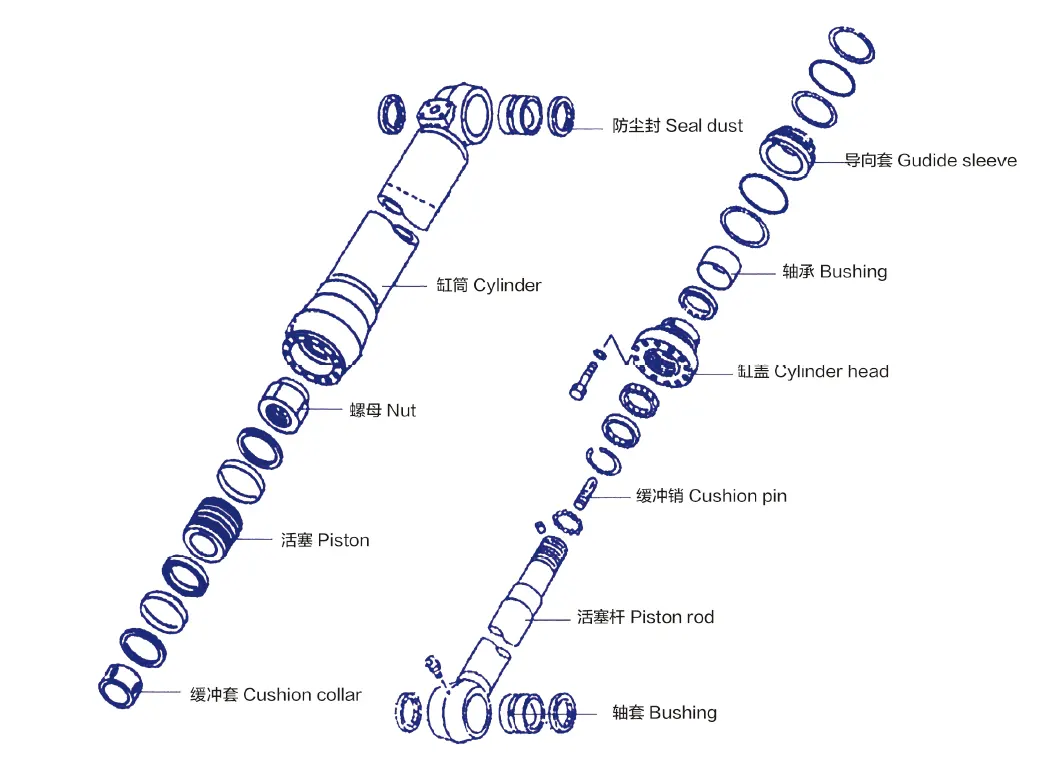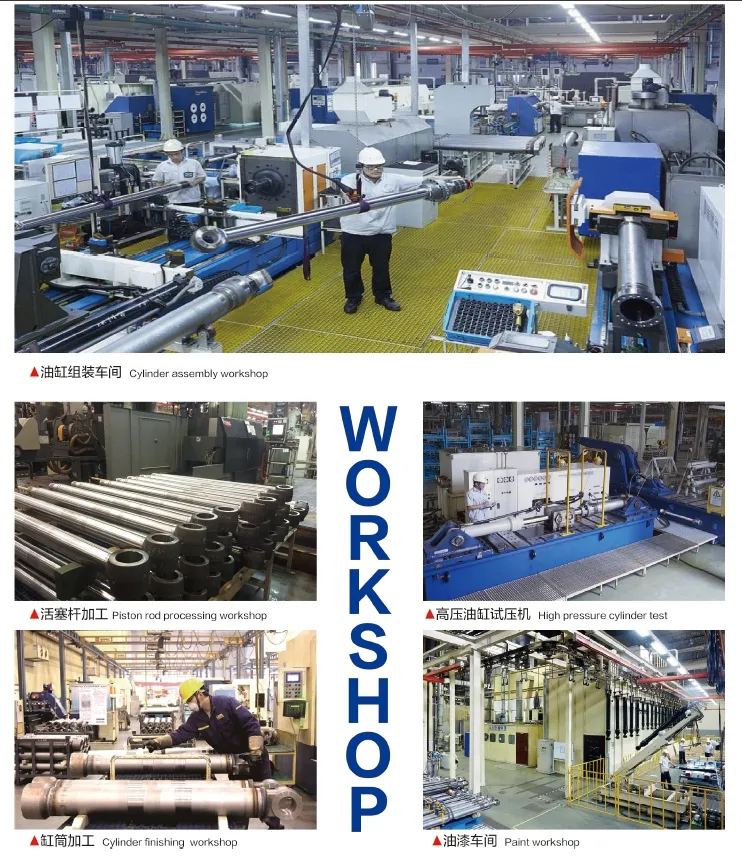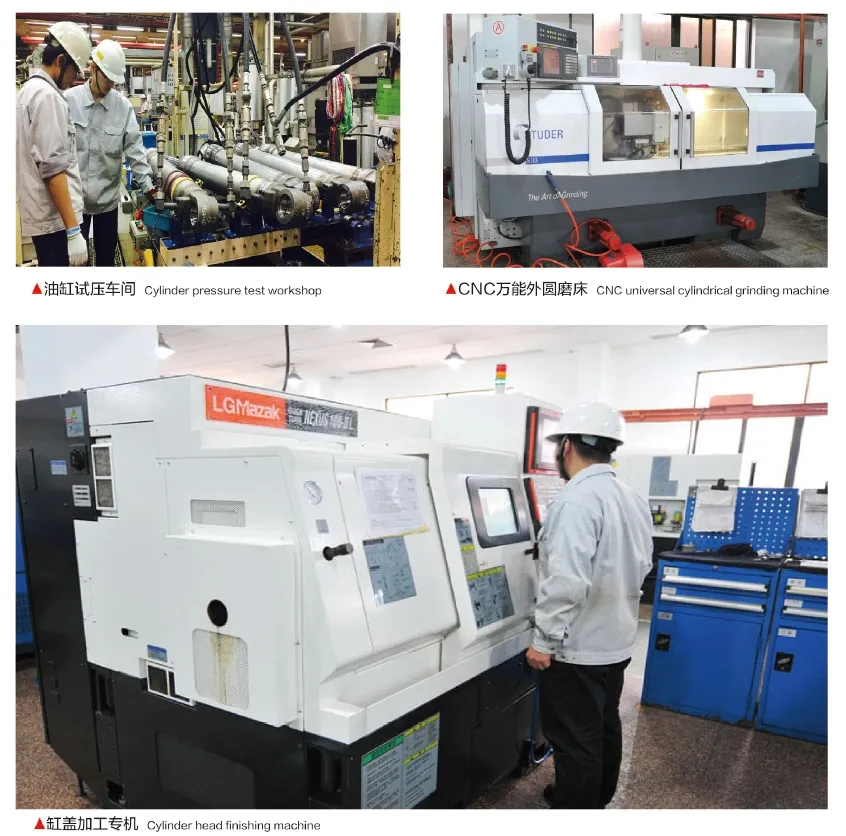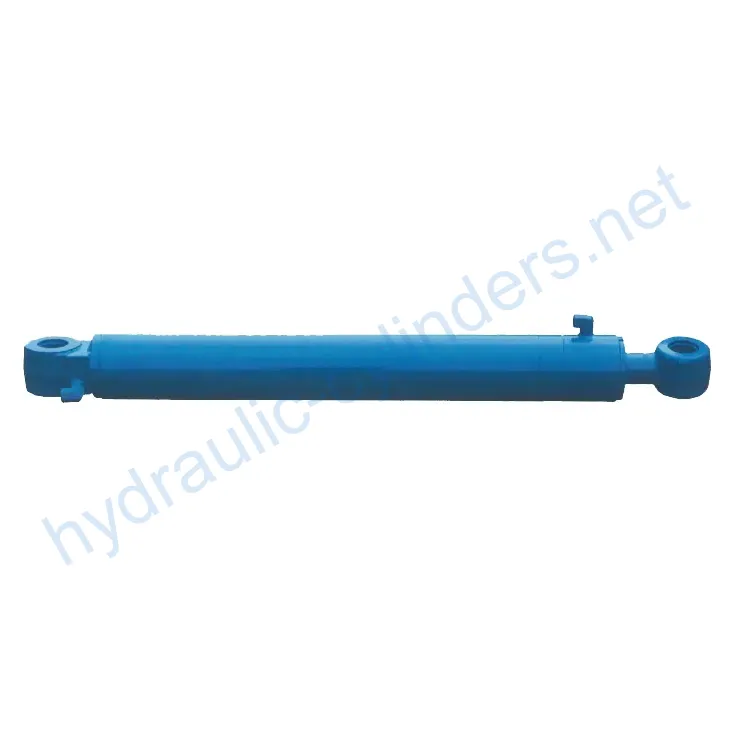Arm CylinderFor Sumitomo Small Excavator SH265
As one of the hydraulic cylinders manufacturers, suppliers, and exporters of mechanical products, We offer hydraulic cylinders and many other products.
Please get in touch with us for details.
Mail:sales@hydraulic-cylinders.net
Manufacturer supplier exporter of hydraulic cylinders.
Arm Cylinder For Sumitomo Small Excavator SH265
Introduction
The arm cylinder is a specially designed hydraulic cylinder that provides linear motion and power to the arm of various machinery, such as excavators, cranes, and robotic arms. It plays a key role in hydraulic systems, allowing additional tools or attachments to move and be controlled effectively. These cylinders not only enable smooth motion, but also withstand heavy loads, ensuring efficient operation and reliability of the machinery under various working conditions.

Features
- High Efficiency Transmission: The arm cylinder provides powerful linear motion and force, ensuring high-performance capability of the robotic arm in various operations.
- Precise Control: Through the hydraulic system, the arm cylinder enables precise motion control, making the operation of additional tools more flexible and accurate.
- Durability: Arm cylinders are typically made of high-strength materials, offering good wear and corrosion resistance, suitable for long-term use in harsh environments.
- Multi-functional Adaptability: These cylinders can be widely applied to various machinery, such as excavators, cranes, and robotic arms, to meet different working requirements.
- Easy Maintenance: The design considers ease of maintenance and replacement, making regular inspections and servicing more convenient, thereby reducing equipment downtime.

Applications
The arm cylinder finds its application in various industries and sectors:
- Construction Engineering: In excavators and cranes, the arm cylinder is used to control the movement of the bucket or boom, performing earthwork, material handling, and structural installation.
- Manufacturing Industry: In automated production lines, the arm cylinder is used for the motion of robotic arms, performing assembly, welding, and material handling processes, thereby improving production efficiency and accuracy.
- Agricultural Machinery: In agricultural equipment such as harvesters and seeders, the arm cylinder controls the movement of the operating arm, executing tasks like seeding, fertilizing, and harvesting.
- Mining: In mining equipment, the arm cylinder controls the arm movement of mining machinery, facilitating the extraction and transportation of minerals.
- Logistics and Transportation: In forklifts and handling robots, the arm cylinder is used to control the lifting and movement of forks, enabling material handling and stacking.
Design Considerations and Selection Criteria
- Bearing Capacity: The arm cylinder is designed to handle specific loads based on the requirements of the machinery it is installed in.
- Sealing: Various sealing elements, such as piston seals and rod seals, are used to ensure effective sealing. These seals are made of wear-resistant materials such as polyurethane and nitrile rubber.
- Durability: The cylinder body and threaded ends undergo precise processing to enhance wear resistance. Regular lubrication with appropriate hydraulic oil is necessary for smooth operation.
- Safety: Safety measures are taken into account during the design process to ensure the cylinder’s safe operation, including features like pressure relief valves and emergency stop mechanisms.
- Maintenance: The arm cylinder is designed for easy maintenance and repair, with components that can be quickly replaced to minimize downtime.

Sealing and Lubrication
The arm cylinder incorporates various seals, such as piston seals and rod seals, which are made of wear-resistant materials like polyurethane and nitrile rubber. The cylinder body and threaded ends undergo precision processing to enhance wear resistance. Regular lubrication with an adequate amount of hydraulic oil is required to ensure proper lubrication.
Regular Inspection and Preventive Maintenance
- Regularly inspect the arm cylinder for any signs of leakage, wear, or damage.
- Check and maintain the hydraulic oil levels and quality to ensure proper lubrication.
- Ensure all safety features, such as pressure relief valves and emergency stop mechanisms, are functioning correctly.
- Follow the manufacturer’s recommended maintenance schedule for replacing seals and other worn-out components.
- Keep the cylinder clean and free from debris or contaminants that may affect its performance.
Product Installation Guide
Proper installation of the arm cylinder is crucial for its performance and longevity. Follow the steps below:
- Ensure the machinery is powered off and all hydraulic pressure is released.
- Position the arm cylinder in the designated mounting area.
- Connect the hydraulic hoses and fittings according to the manufacturer’s instructions.
- Tighten all connections to the recommended torque specifications.
- Test the cylinder’s operation to ensure smooth motion and proper functionality.

Safety Considerations and Environmental Factors
When using the arm cylinder, it is important to follow all safety measures to prevent accidents and ensure personal safety. The implementation of safety features, such as pressure relief valves and emergency stop mechanisms, is essential. Additionally, proper disposal of hydraulic fluids and adherence to environmental regulations are important for minimizing the impact on the environment.
Troubleshooting and Common Issues
Common issues with arm cylinders may include leakage, insufficient or jerky movement, and abnormal noise. Here are some troubleshooting tips and solutions:
- If there is leakage, check the seals and fittings for damage or misalignment. Replace any faulty components.
- If the movement is insufficient or jerky, inspect the hydraulic system for any blockages or inadequate pressure. Check the hydraulic oil levels and quality.
- If abnormal noise occurs, it may indicate a mechanical issue. Inspect the cylinder and related components for wear or damage. Lubricate as necessary.
By following these troubleshooting tips and implementing preventive measures, potential issues can be minimized, ensuring smooth operation and longevity of the arm cylinder.

Author: lyl
About Our Company
We are a professional manufacturer of replacement hydraulic cylinders with a wide range of products. We have become one of the leading manufacturers and wholesale distributors in the domestic and international markets. Our commitment to excellence in quality is upheld through the industrialized production management strategy of our fine manufacturing workshop, continuously improving our technical level and production efficiency.
By introducing high-end digital manufacturing equipment and professional testing systems, we optimize our manufacturing platform and perfect our product quality control processes, demonstrating strong innovative capabilities. Our goal is to meet diverse customer needs with principles of efficiency, precision, and high quality.


Our company is known for its professionalism, international certifications, customized services, advanced production equipment,
Take a Tour of Our VR Factory:
Take a tour of our VR factory with the following
Hydraulic Cylinder Application:


